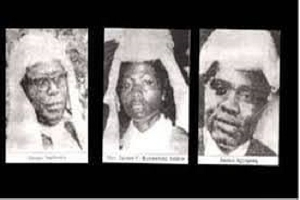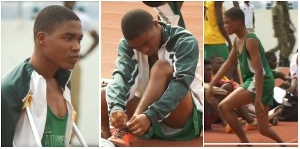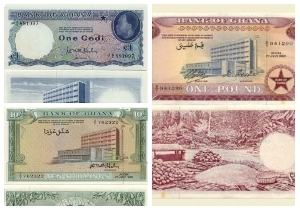“Wotan okwaduo a na w’ayi n’amirika.”
As a founding member of Canada Chapter of the NPP and also its first President, I became painfully aware of the uncompromising hatred that Ghanaian wives harbor against the careers of their political husbands.
In 1991 when Mr. S.K. Boafo, the current Ashanti Regional Minister, came to Toronto to sew the seeds of what is today Canada’s Chapter of NPP, my wife would not even have anything to do with him because he was going to drag me into politics. Later on, when the Chapter was being inaugurated, she did not show up at the function because she would not in any way, shape or form, show encouragement for the career that she thought I was about to embark upon. Her face was like puss when I left for meetings and remained so till I got back home. I managed to serve my term of office to the completion of the 1992 elections and then I relinquished my position to another person. In fact, I quit active politics mainly because of the attitude I received at home.
I have had the opportunity to discuss this issue with many in politics or those who attend political meetings and the story is the same. Many wives display a lukewarm attitude, at best, while most show complete displeasure towards the career of their political husbands. But, is it any wonder why Ghanaian wives loathe their husbands’ political careers? As my wife put it then, “What happened to Kwame Nkrumah’s Fathia, Mrs. Christiana Achampong, Naa Morkor and Mrs. Linman to mention a few? What happened to their husbands and their children?” Many Ghanaian political husbands have died disgraceful deaths in prison or in exile leaving their wives to fend for the young ones alone and in poverty. Is it any wonder why a Ghanaian wife would try to put cold water on a husband’s political ambitions?
It is in this light that I cite Mrs. Konadu Agyeman Rawlings as one contemporary political wife of a different breed. Most political observers would note that Mr. Rawlings received a great deal of encouragement from his wife even when he was in prison after his first failed coup attempt. She was by his side during the infamous June 4th era and it is widely speculated that Mr. Rawlings became an elected President because his wife’s persistent prodding to become one. Mrs. Rawlings carried herself as an outstanding first lady. While many will classify her as overly ambitious and her character bothering on ubiquity, she, unlike many political wives, was a pillar of strength for her husband from May 1979 until now. And that is a rare quality among the wives of Ghanaian politicians.
I would wish that Mrs. Rawlings would make her knowledge and experiences available to Ghanaian womanhood by setting up some kind of a training school for political and would-be political wives (and women, in general) to train them in how to support their husbands careers in politics and other spheres of life. Every man needs encouragement for all endeavors, especially, from the person closest to you – your better half.


















